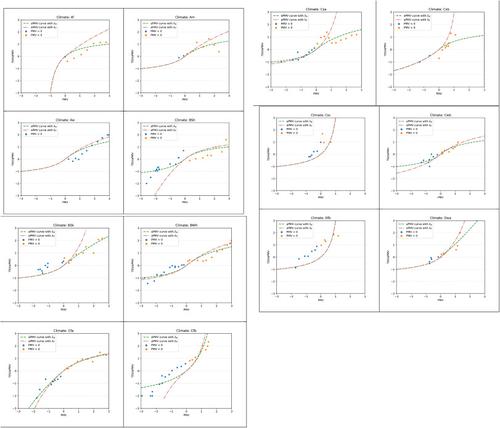当前位置:
X-MOL 学术
›
Build. Environ.
›
论文详情
Our official English website, www.x-mol.net, welcomes your feedback! (Note: you will need to create a separate account there.)
An improved approach for solving the adaptive coefficient in the aPMV (adaptive predictive mean vote) index
Building and Environment ( IF 7.4 ) Pub Date : 2024-04-04 , DOI: 10.1016/j.buildenv.2024.111481 Shaoxing Zhang , Runming Yao , Baizhan Li
Building and Environment ( IF 7.4 ) Pub Date : 2024-04-04 , DOI: 10.1016/j.buildenv.2024.111481 Shaoxing Zhang , Runming Yao , Baizhan Li

|
An accurate evaluation of thermal environments in buildings is beneficial not just for occupant comfort but also for reducing unnecessary overheating or overcooling energy. The aPMV (adaptive Predictive Mean Vote) index can take into account occupants’ thermal adaptations and is stipulated in Chinese standards for evaluating thermal conditions in free-running buildings. Even though substantial studies have validated the efficiency of the aPMV index, it occasionally exhibits limited performance in certain scenarios. This paper proposes a novel algorithm for solving the key adaptive coefficient in the aPMV index, aiming to enhance its predictive advantage. Validation conducted using the public ASHRAE thermal comfort database across 14 climate zones demonstrates that the new algorithm-based aPMV index can effectively avoid the “” problems in its original solving process and fit data with low errors under various thermal conditions, improving average performance by 34.5–37.7% compared to the previous optimization method. In specific climate condition, its performance improves by more than doubling. The different values in the aPMV index are able to quantify specific patterns of occupant thermal adaptations in cold, mild, and hot climates, respectively. Some aPMV outcomes with large deviations can also be explained adequately by the specific properties of the original data sources. The code is available at .
更新日期:2024-04-04



























 京公网安备 11010802027423号
京公网安备 11010802027423号